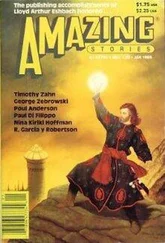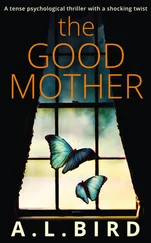Published by Avon an imprint of
HarperCollins Publishers Ltd
1 London Bridge Street,
London, SE1 9GF
www.harpercollins.co.uk
First published in Great Britain by HarperCollins Publishers 2017
Copyright © Alexandra Burt 2017
Cover photographs © Barbara Teager Photography / Shutterstock / Getty Images
Cover design © HarperCollins 2017
Alexandra Burt asserts the moral right to be identified as the author of this work.
A catalogue copy of this book is available from the British Library.
This novel is entirely a work of fiction. The names, characters and incidents portrayed in it are the work of the author’s imagination. Any resemblance to actual persons, living or dead, events or localities is entirely coincidental.
All rights reserved under International and Pan-American Copyright Conventions. By payment of the required fees, you have been granted the non-exclusive, non-transferable right to access and read the text of this e-book on screen. No part of this text may be reproduced, transmitted, down-loaded, decompiled, reverse engineered, or stored in or introduced into any information storage and retrieval system, in any form or by any means, whether electronic or mechanical, now known or hereinafter invented, without the express written permission of HarperCollins.
Source ISBN: 9780008220853
Ebook Edition © February 2016 ISBN: 9780008220860
Version 2017-01-19
To those who live under beds,
and pass through walls.
To old and battered houses
with creaking wooden floors.
“ All the great stories have witches in them .”
Unknown
Table of Contents
Cover
Title Page
Copyright
Dedication
Epigraph
Prologue
Part One
Chapter 1
Chapter 2
Chapter 3
Chapter 4
Chapter 5
Chapter 6
Chapter 7
Chapter 8
Chapter 9
Chapter 10
Chapter 11
Chapter 12
Chapter 13
Chapter 14
Part Two
Chapter 15
Chapter 16
Chapter 17
Chapter 18
Chapter 19
Chapter 20
Chapter 21
Chapter 22
Chapter 23
Chapter 24
Chapter 25
Chapter 26
Chapter 27
Chapter 28
Chapter 29
Chapter 30
Part Three
Chapter 31
Chapter 32
Chapter 33
Chapter 34
Chapter 35
Chapter 36
Chapter 37
Chapter 38
Chapter 39
Chapter 40
Chapter 41
Chapter 42
Chapter 43
Chapter 44
Epilogue
Acknowledgements
About the Author
About the Publisher
They stopped once for the night, in Albuquerque. The name of the city intrigued the girl, so she looked it up in the encyclopedia she carried with her. It was her most prized possession.
Albuhkirkee … She silently repeated the word until it lost all meaning. The girl caught herself drifting off into some paranoid daydream, not knowing what time it was or where they were going. They had never driven this far for so long, never had to pump gas so many times.
Weary with the burden of her heavy eyelids, she was drunk with sleep by the time her mother stopped at a hotel. Rodeside Inn , the sign read. All she’d remember later were the weeds that grew through the cracks of the concrete parking lot.
The next morning, her mother bought donuts at a drive-through and they got back on the road. The girl went to sleep, but when she woke up and looked out the window, the scenery hadn’t changed at all. After days on the road, she felt as if she was leaking electricity. The hours stretched, and she wished her mother hadn’t thrown her bag in the trunk of the Lincoln—she longed for her American Girl magazine and the jelly bean–flavored ChapStick.
She opened a bag of Red Vines, sucked on them, and then gently rubbed them over her lips until they turned crimson.
Running her fingers across the cracked spine of her encyclopedia—the first pages were missing and she’d never know what words came before accordion; a box-shaped bellows-driven musical instrument, colloquially referred to as a squeezebox— she concentrated on the sound of the pages rustling like old parchment as she flipped through the tattered book.
Her mother called her Pet. The girl didn’t like the name, especially when her mother introduced her. This is Pet, she’d say with a smile. She’s very shy. Then her mother moved on quickly, as if she had told too much already.
Pet , the encyclopedia said, a domestic or tamed animal kept for companionship. Treated with care and affection.
The girl opened the encyclopedia to a random page. She remembered when it was new, how the pages and the spine had not yielded as readily, and she wondered if the pages would eventually shed. She attempted to focus on a word but the movement of the car made her nauseous. Eventually she just left the book cracked open in her lap.
“My feet are cold. Can I get a pair of socks from the trunk?” she asked somewhere after the New Mexico/Texas border.
“Not now,” her mother said and checked her watch.
The girl fell asleep again and later awoke to the slamming of the car door. She rubbed her eyes and her surroundings came into focus: red brick walls, a large sign that read Midpoint Café , her mother standing by a pay phone only a few feet away, rummaging through her purse for change. It was noon and the girl felt ravenous as she stared at a display poster of fries and milkshakes in the café window.
“I’m hungry,” she called out to her mother.
“It has to be quick, we have to be somewhere,” the mother said, and the girl slid on her sandals in a hurry.
In the gloom of the dingy café, their knees touched under the narrow table. The mother opened up a newspaper left behind in the booth and scanned the headlines.
The girl had so many questions: Why are we rushing?; Who did you call?; Where are we going?; Why did we drive all the way from California to Texas?—she had the whole conversation planned out, knew exactly what to ask: short, direct questions that left no room for vague and elusive answers. The place was loud and crowded and the diners competed with one another to be heard, creating an overall atmosphere of raucousness. In the background, a baby cried and a waitress dropped a plate.
They ordered lunch—French fries and a strawberry shake for the girl, coffee and a Reuben sandwich, no sauerkraut, for the mother—and while they waited for their order to arrive, the mother excused herself. “I have to make another call, I’ll be right back.”
She ate and watched the diners and minutes later, her mother returned. She had seemingly perked up, now appeared bubbly, almost as if in a state of anticipation, and her eyes moved quickly. “Let’s play a game,” she said and opened the paper. “Tell me a number between one and twenty-two.”
The girl loved numbers. Numerology; belief in divine, mystical or other special relationship between a number and a coinciding event. The number 7 was her favorite one. 7 meant she was a seeker, a thinker, always trying to understand underlying hidden truths.
“Seven,” the girl said and silently recited random facts: seven ancient wonders of the world, seven days of the week, seven colors of the rainbow.
They ate silently, the girl devouring the fries, then taking her time with the milkshake, studying the people around her while her mother skimmed page seven of the newspaper. She wondered how naming a number of a page was a game to begin with, but her mother seldom answered questions posed to her, and so she didn’t ask.
Читать дальше












